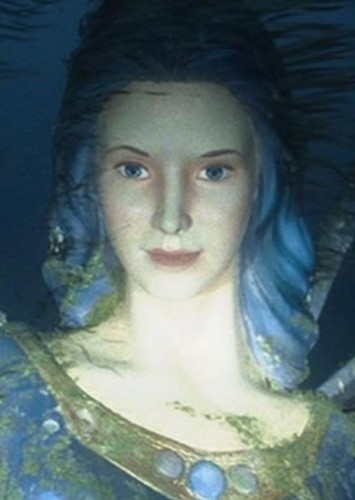by Katharine Elizabeth Monahan Huntley

As the frozen supertoy boy stares fixedly at the Blue Fairy reciting Pinocchio’s mantra, I too begin a silent chant: Let this be the final scene, let this be the final scene, let this be the final scene . . .
It’s not, of course. For director Steven Spielberg to allow a mainstream film end in a moment of melancholia is far too great a wish.
A.I.: Artificial Intelligence relates a futuristic story of a robotic boy’s love for his adoptive mother. Advanced technology enables “mecha” David to operate fully loaded—with logic and emotion. He is sent to live with one of the manufacturers, Henry Swinton and his grief stricken wife, Monica, ostensibly to replace their comatose son, Martin.
Once Martin—insecure and inhumane—miraculously regains consciousness and comes home, David has exceeded his usefulness and is abandoned to the grim fairy tale forest.
Imprinted with an obsessive Oedipus complex, the robot child is certain if he were only transformed into a real boy, his mother would welcome him back. David and his irritating walking/talking teddy bear set off on this quest, by way of Shirley Jacksonesque “flesh fairs” and mad scientists.
Visually, A.I. a cinematic astonishment: Manhattan drowning, Gigolo Joe jubilantly tap dancing, wizardly Rouge City beckoning.
As a story, the problem lies in its key characters. They are not complex in an interesting way; rather, their actions confound. Examples: The seemingly intelligent Swintons do not recognize their only offspring is an obvious bad seed; and doesn’t anybody realize David’s highly respected creator, Professor Hobby, cloned his own deceased son?
Stanley Kubrick’s ghost floats about A.I., haunting the unrealized potential for a sophisticated psychodrama. The weird happy ending (extraterrestrials are involved), however, is unmistakably Spielberg—more artificial sweetener than artificial intelligence.
An inevitable waltz into schmaltz.
